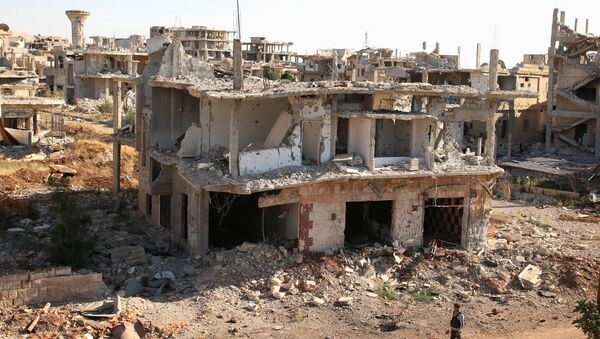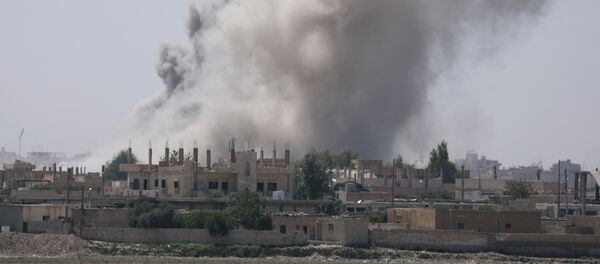"We hope very much that these de-escalation areas agreement would resolve the problem, which killed the deal between us and [US] President [Barack] Obama, mainly, the problem of Jabhat al-Nusra [Nusra Front] and all its incarnations," Lavrov said.
The Russian minister said that the Moscow-Washington deal on coordination of efforts to counter terrorism was derailed due to lack of Washington’s desire to fight Nusra Front.
"From the very beginning the United States coalition, while fighting Daesh, banned in Russia more or less actively, sometimes more, sometimes less, they have been sparing Jabhat al Nusra, obviously," Lavrov explained.
Russia considers the terrorist threat in Syria as the main impediment to the reconciliation. According to Lavrov, Russia is trying to be " flexible" in its relations with its partners.
"And through our dealings with Iran and Turkey, by the way, we, and through our dealings with Germany and the United States and with the armed opposition, we try to achieve this goal by having the cessation of hostilities between the government and those who fight it on the part of the patriotic opposition, so that all forces can be released free to fight terrorism … Of course, they have been consulted with the Syrian government. And the Syrian government does not mind us to move in the direction [in which] we are moving in the context of the overall understanding, that number one priority is to fight Daesh," Lavrov said.
At the latest international meeting on Astana, which took place earlier in the week, three ceasefire guarantor states with help of Jordan and the United states as observers, tried to coordinate a whole range of specifics of the establishment of four de-escalation zones in Syria. They could not agree on all the details and sign a package of documents, but committed to continue work at the expert level.




